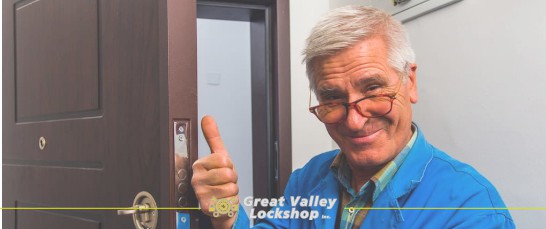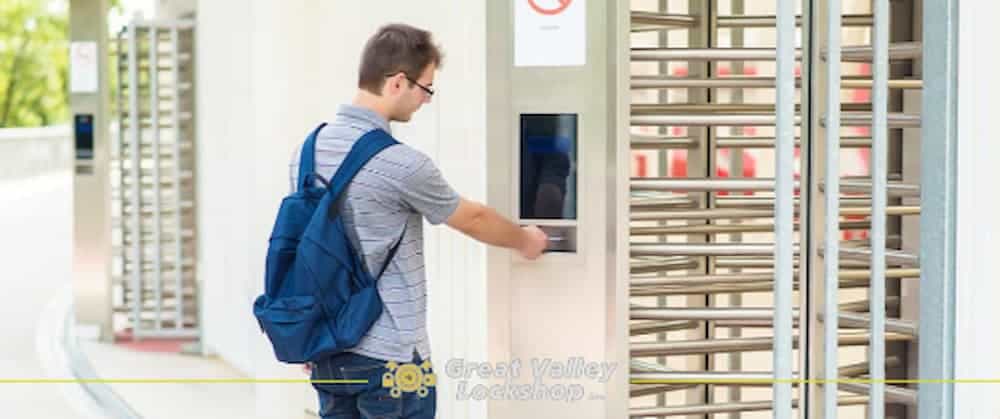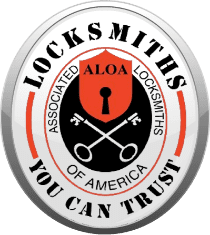
Automatic Door Lock Systems: Commercial Guide for Beginners
Get the information you need to understand the differences between the main types of automatic locks and opening systems for commercial buildings. This article provides an overview of automatic door locks, automatic door operators and closers, as well as automatic garage opening systems.
Automatic Door Locks
Security technology allows users to lock and unlock doors automatically, remotely and without keys. The advantages to using commercial automatic locks include:
- The activation of locks immediately upon closing,
- Increased security and convenience,
- Possibility to manage locks remotely.
Integration with security systems, panic hardware, and fire alarm systems is also possible with automatic door locks to prevent entry or release of individuals in emergency situations. The following types of automatic door locks and can be integrated with most access control systems, proximity readers, and biometric entry access systems.
Electric Deadbolt Locks
Electric deadbolts are automatic door locks equipped with direct-throw, solenoid-driven mortise bolts or a right-angle bolt for door frames that are narrower. This type of lock relies on an electric current to activate the locking mechanism. Electronic deadbolts provide extra security for businesses without requiring modification to existing hardware, access control or security system.
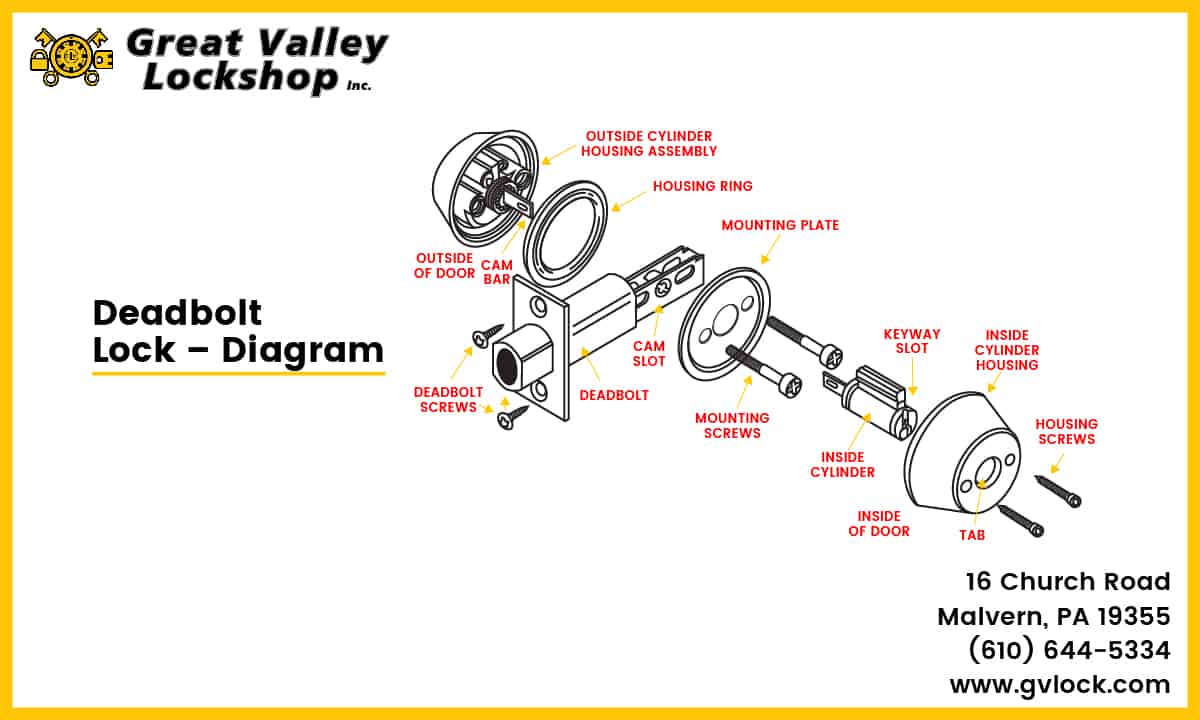
Electric Strike Locks
Door locks operating with 12-volt, or higher, electric currents are called electric strike locks. They are access control devices and can be configured as fail-secure, fail-safe or hold-open. It’s important to note that both fail-secure and fail-safe hardware allow free egress. Hold-open locks unlock when electricity is applied to the strike and stay unlocked until the door is used and manually shut again.
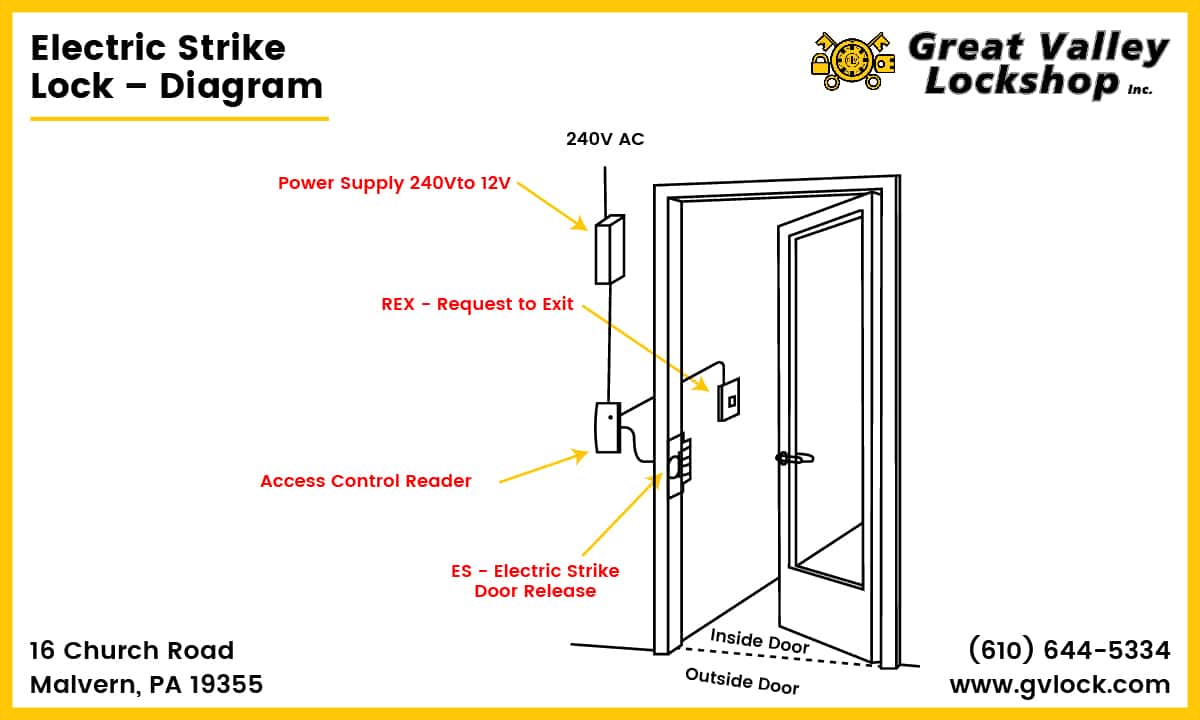
If the electric strike uses alternate current, you will notice that it makes a buzzing sound. If the device is DC-powered it’s only audible when the lock releases.
Electromagnetic Locks
Also known as magnetic locks and maglocks, these consist of an armature and electromagnet plate that locks a door automatically when it closes. They work by attaching the armature plate to a door and an electromagnet to a door frame. Electric currents passing through the electromagnet component naturally attract an armature plate to keep the door shut. This type of lock is particularly well suited for automatic sliding doors.
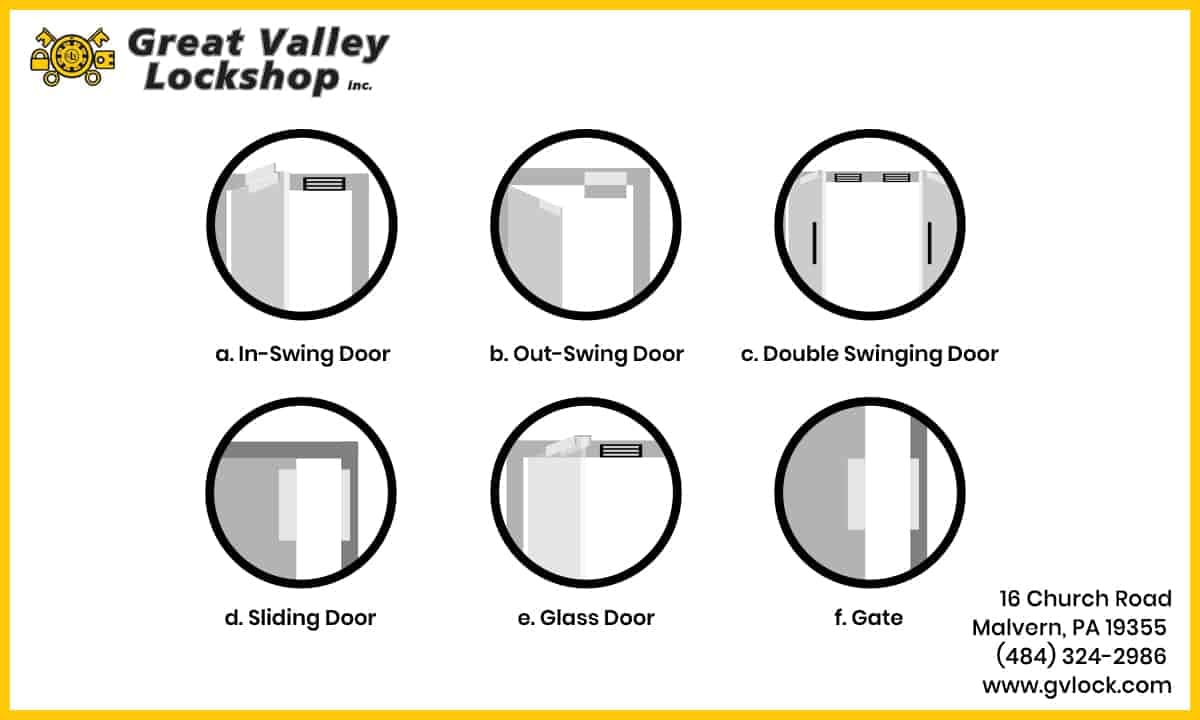
There are fail-secure and fail-safe configurations for electromagnetic locks as well. Electromagnetic locks are less likely to jam or fail in comparison to other automatic and traditional locks. Fail-safe magnetic locks wouldn’t usually be a recommended high-security solution as they need power to stay locked and can, therefore, be disabled by cutting the power. But high-traffic business and office buildings, for example, often rely on powerful fail-secure maglocks because they are extremely secure, easy to use, and durable.
Commercial Automatic Door Operators and Closers
Which electrified door operator or mechanical door closer is right for a particular door will depend on the door’s fire safety and security requirements, as well as any desired aesthetic or accessibility features.
Door Closer Grades
- Grade 1 door closers – for high-traffic commercial applications. They are designed to withstand a traffic volume of up to 400 people daily and last for at least seven years before requiring replacement.
- Grade 2 door closers – for low to medium-traffic commercial applications. They are designed to withstand between 50 and 100 operations daily.
Electrified Door Operators
Most electrified door operators assist with both opening and closing doors. They require electricity, but some types have their own power supply. There are four types of electrified door operators: regenerative power operators, low-energy electromechanical operators, wave-to-open switches, and low-energy electro-hydraulic operators.
Regenerative Power Operators
Regenerative power operators are easy to install and will last for many years. These operators work by charging an onboard battery that supplies a low-energy current to open and close a door. Many models have a plug-in option, but they’re primarily designed to generate the electricity they use themselves.
Because these operators have a battery and generate their own power, there’s no need to run a wire to them. They can easily be installed almost anywhere, regardless of whether an external power source is readily available.
Regenerative power operators are suited for high-traffic areas where doors are usually opened manually but automated operation is occasionally needed. They’re perfect for meeting ADA Accessibility Guidelines in commercial spaces and public facilities. In these places, most people will manually open a door, but the option to use an electrified door opener often must be available. As long as less than 25 percent of people who go through a door use the regenerative power operator, it’ll provide all the power that’s needed to operate the door.
Electromechanical Door Operators
Low-energy electromechanical door operators are quiet and require little power. They have a gearbox that provides consistent automatic operation and will last for years. Unlike regenerative power operators, low-energy electromechanical door operators must be connected to an external power source.
These operators can be installed where automatic operation is the primary mode of opening, and not just an option that’s used occasionally. They’re well-suited for moderate- to high-traffic areas.
Wave-to-Open Switches
Wave-to-open switches offer touch-free operation. Audible or visual cues (e.g. motion) trigger the door to open, eliminating any need to touch the door or a button. After the set amount of time, the door is then closed automatically.
While wave-to-open switches have many applications, they’re especially suited for places where hygiene is a major concern. Many businesses are installing them in public restrooms, as the final step in making restrooms touch-free. These operators have also been used in medical settings for a long time.
Electro-Hydraulic Door Operators
Electro-hydraulic door operators are durable and dependable, and they can be installed on both exterior and interior doors. Like regenerative power operators, they are used in commercial buildings where automatic operation is only sometimes needed. They’re frequently installed when a low-traffic entry needs to be retrofitted for ADA compliance.
Mechanical Door Closers
These devices make doors self-closing by storing the force used to open the door – either automatically or manually – in a spring mechanism. This force is then used to automatically return the door to a closed position in a controlled manner, preventing the door from slamming shut.
Advanced Commercial Security with GV Lock
Great Valley Lockshop has a wide selection of commercial keyless entry and access control devices ensuring both convenience and security. Contact our licensed commercial locksmith techs at 610-644-5334 or request a free online estimate.
